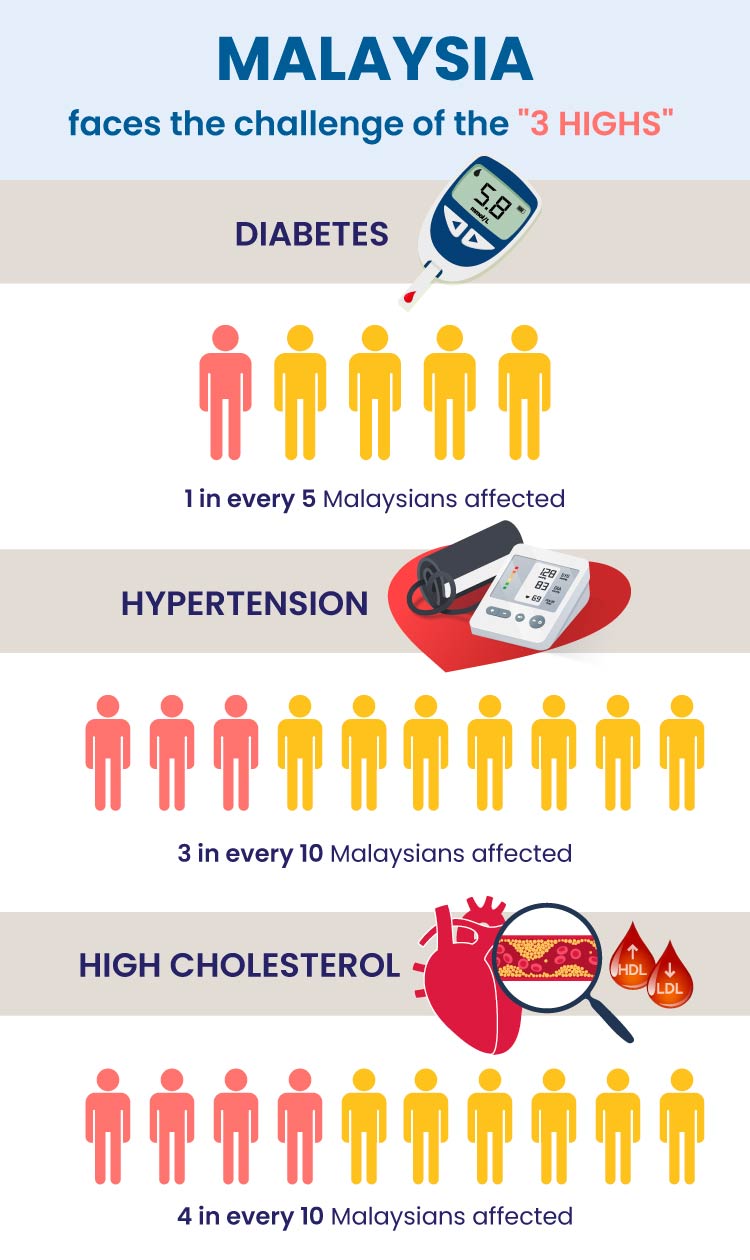Around the world, the health and wellness industry has seen tremendous growth, due partly to the public’s increasing awareness on the need for selfcare and disease prevention. This article provides an overview as well as market insights on the healthcare industry in Malaysia, and how can enterprising individuals benefit from it.

In recent years, the global health and wellness industry has undergone a revolution due to the pandemic and lockdown restrictions. People worldwide are now more health-conscious, adopting preventive measures for healthier lives. The healthcare industry in Malaysia mirrors this trend, with substantial growth in healthcare funding, expenditure and life expectancy.
In this article, we delve into Malaysia's thriving healthcare and wellness industry, address prevalent demographic issues, discuss market expectations and key players, and touch on how enterprising individuals can contribute and benefit from the nation's overall well-being.
The health and wellness market size worldwide is staggering. A February 2023 Statista report1 projected a valuation surpassing US$4.3 trillion in 2020, a number anticipated to surge to nearly US$7 trillion by 2025, thus presenting abundant prospects for aspiring entrepreneurs. Notably, the healthcare industry in Malaysia and the broader Asian market have emerged as pivotal growth catalysts, as consumers increasingly pursue natural and holistic well-being solutions.
The pandemic has undoubtedly spurred many families to take a proactive approach for a healthy lifestyle and avoiding potential illness. According to the Malaysia National Health Accounts (MNHA) presentation by Ministry of Health Malaysia on 10 November 2022, Malaysians allocated RM78.2 billion to healthcare expenditures in 2021, constituting 5.1% of our nation's GDP, averaging RM2,401 per capita2.
Notably, nearly one-third of this expense is from out-of-pocket payments, without aid from insurance companies. Among these expenses, 46% is attributed to private hospitals, 19% to private medical clinics, 16% to community pharmacies, 3% to private dental clinics, 3% to traditional, complementary and alternative medicine (TCAM) providers, and 11% to other miscellaneous healthcare providers2.

Though death and disease are unavoidable facets of life itself, many Malaysians are taking a more proactive and preventative approach to healthcare and improving greater wellbeing in their lives. According to a 2021 Euromonitor report, the revenue of the vitamins & minerals industry in the country was worth RM5.6 billion3.

This proactive approach to health and wellness could not have come at a better time, considering that Malaysia has been unceremoniously recognised as the country with the highest obesity rate in Asia. According to the 2019 National Health and Morbidity Survey, as many as 50% of Malaysian adults are classified as overweight or obese. This is an alarming fact, as up to 74% of deaths in Malaysia are caused by Non-Communicable Diseases (NCDs), often linked to poor fitness awareness and weight management.

As a result of the obesity issue, the healthcare sector in Malaysia is beginning to face a health problems and health crisis led by the "3 Highs": diabetes (affecting 1 in every 5 Malaysians), hypertension (affecting 3 in every 10 Malaysians), and high cholesterol (affecting 4 in every 10 Malaysians). Unfortunately, these conditions represent major risk factors for cardiovascular disease, which stands as the leading cause of death in the country.
The high obesity numbers in Malaysia are often attributed to poor lifestyle choices, primarily a diet lacking in proper nutrition as well as a sedentary lifestyle that lacks exercise. Additionally, the same study also reveals that roughly 95% of Malaysians fail to meet their daily fruit and vegetable intake recommendations for healthy eating habit, further contributing to the rising obesity rates.

Considering the health challenges above, Malaysia's healthcare and wellness sector offer a unique opportunity for those dedicated to making a positive impact. This growing sector presents a chance to contribute to a healthier and happier nation, addressing the pressing health issues that affect our communities.
Amidst the continuous flourish of Malaysia’s healthcare and wellness industry, individuals aspiring to initiate their own businesses can tap into this burgeoning potential with Amway. As one of the country’s market leader in the health and wellness sector, the company has a strong supportive network and training environment that makes it accessible to aspiring entrepreneurs of all backgrounds.
Amway's dedication to promoting a healthier lifestyle and nurturing healthy social community has contributed to the growth of the vitamins and dietary supplements market in the last decade. In our forthcoming article, we will delve deeper into the reasons why Amway stands in the perfect intersection of time and place, making it the optimal choice for those poised to make their mark in Malaysia’s healthcare and wellness landscape for good overall health and wellness.
Sources:
https://www.euromonitor.com/vitamins-and-dietary-supplements-in-asia-pacific/report